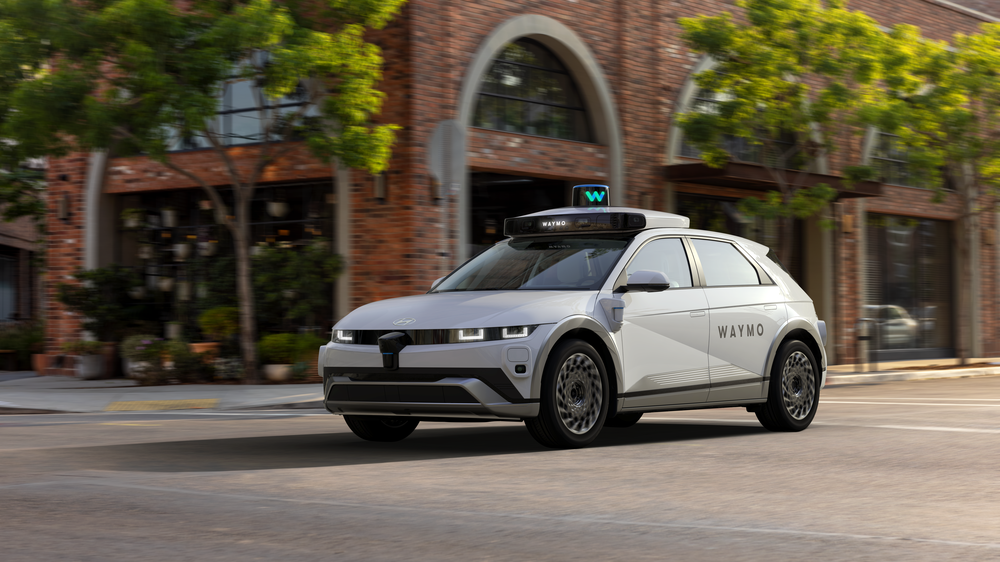NYC cab drivers fear death of industry as Waymo aims to launch driverless taxis
June 19, 2025, 12:01 p.m.
Waymo's potential launch could decimate the livelihoods of roughly 100,000 taxi and for-hire vehicle drivers in New York City, advocates said.

A decade after Uber upended New York’s yellow taxi industry, another Silicon Valley giant is threatening to push the city’s cabbies to the brink of extinction.
Waymo, a robot-driven car service owned by Google's parent company Alphabet, applied for a permit Wednesday with the city transportation department to test out a small fleet of autonomous vehicles in an outlined Manhattan zone between Central Park and the Battery, and some parts of Downtown Brooklyn.
If approved, the cars wouldn’t pick up passengers, but would guide themselves while a company employee monitors from the passenger’s seat. The pilot aims to prove they’re safe for New York City’s chaotic streets.
The company already operates in several major cities across the country, particularly on the West Coast.
State law mandates that any car in New York must be operated by a human. Waymo officials said they’re lobbying lawmakers to remove the ban.
But the prospect of driverless taxis faces strong political headwinds because Waymo threatens the livelihood of the city’s roughly 100,000 taxi and for-hire vehicle drivers, New York Taxi Workers Alliance Bhairavi Desai said.
“This is just big money from tech finance trying to get around the rules and regulations to essentially destroy a workforce,” Desai said. “We’ve been down this path before when Uber and Lyft came into the industry. They destroyed the income levels and the job security that drivers had. Ten years later, the entire workforce is still reeling from it.”
City transportation officials and the mayor’s office did not respond to requests for comment about Waymo’s application.
Desai pointed out that the arrival of app-based car services like Uber and Lyft in New York City back in 2015 undermined the core business model for yellow taxis, which had a set number of medallions that gave them the exclusive right to street hails that were valued at more than $1 million. Within three years, the app-based companies deployed more than 70,000 for-hire vehicles on the street, far outnumbering the 13,500 yellow taxi medallions registered in the city.
By 2020, the selling price of taxi medallions fell below $200,000, pushing many medallion owners into financial ruin. In 2018, at least eight taxi drivers died by suicide.
Desai now fears that Waymo represents an even greater threat to taxi drivers.
Waymo representatives argued human cabbies can co-exist with robot drivers shortly, but made no promise the company wouldn’t try to one day replace New York’s taxi drivers.
“We believe human drivers and autonomous vehicles will exist side-by-side for many years, just as they do today in San Francisco, Los Angeles, Phoenix and Austin, where we operate,” Waymo spokesperson Ethan Teicher wrote in a statement. “We also know that a new workforce will be needed to support fleets of autonomous vehicles, and are working hard to make those opportunities available to more people.”
Teicher said that the company’s “footprint” helps create jobs, including mechanics for the autonomous vehicles and managers who help run the fleets.
The benefits of introducing a new autonomous taxi service to New Yorkers are unclear. Waymo representatives argued that robot drivers are safer than humans behind the wheel. But in May, the company recalled more than 1,200 of its driverless cars after a software bug caused them to crash into gates, chains and general roadway barriers.
A June report from the ride-share pricing company Obi found that Waymo’s driverless taxi trips were hardly cheaper than the human-operated rides offered by Uber and Lyft.
Desai warned the tech executives from Waymo would be able to buy their way into New York City, noting Uber launched a major advertising blitz in 2017 as the City Council considered limiting the number of cars the company was allowed to put on city streets. The Council later dropped the legislation.
“We often think that consumers shape the economy through demand,” Desai said. “What I’ve lived through is the ability of businesses to inform consumer appetite and demand. I think the economy is far more politically driven than it is consumer-driven.”
Why Teslas are suddenly dominating NYC Ubers and Lyfts